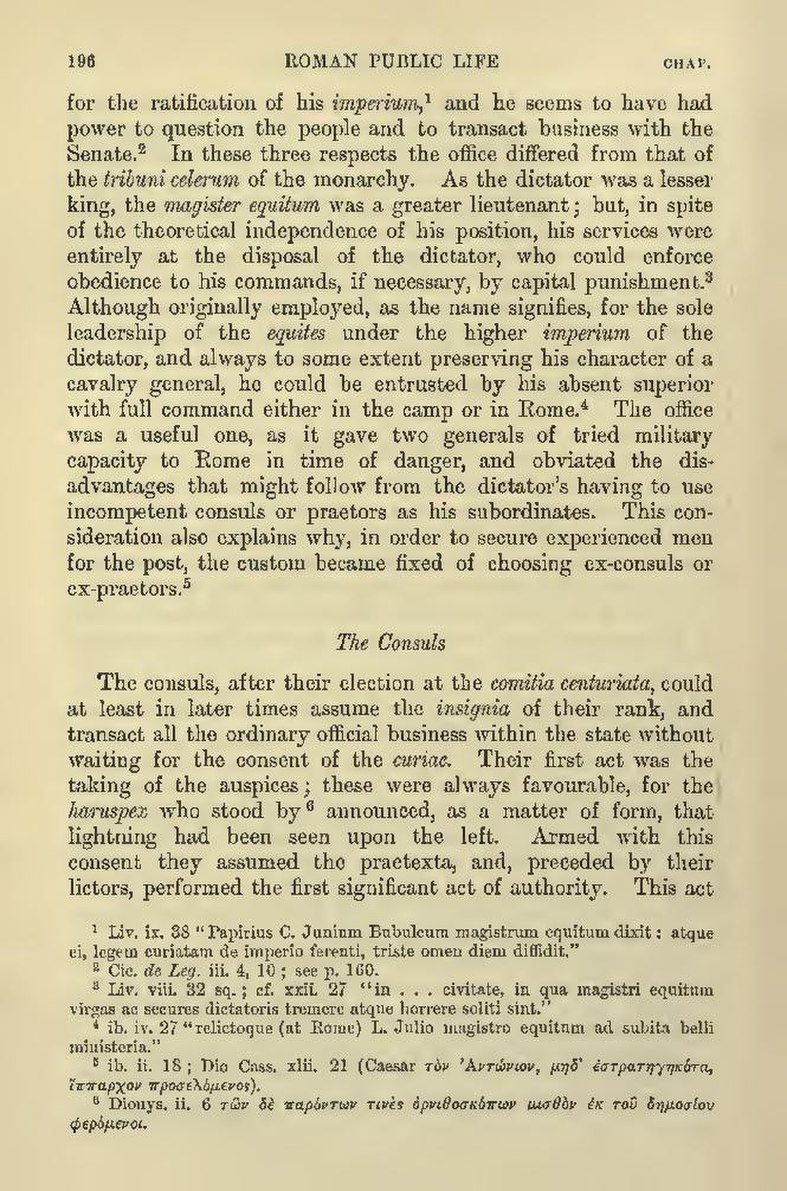for the ratification of his imperium,[1] and he seems to have had power to question the people and to transact business with the Senate.[2] In these three respects the office differed from that of the tribuni celerum of the monarchy. As the dictator was a lesser king, the magister equitum was a greater lieutenant; but, in spite of the theoretical independence of his position, his services were entirely at the disposal of the dictator, who could enforce obedience to his commands, if necessary, by capital punishment.[3] Although originally employed, as the name signifies, for the sole leadership of the equites under the higher imperium of the dictator, and always to some extent preserving his character of a cavalry general, he could be entrusted by his absent superior with full command either in the camp or in Rome.[4] The office was a useful one, as it gave two generals of tried military capacity to Rome in time of danger, and obviated the disadvantages that might follow from the dictator's having to use incompetent consuls or praetors as his subordinates. This consideration also explains why, in order to secure experienced men for the post, the custom became fixed of choosing ex-consuls or ex-praetors.[5] The Consuls
The consuls, after their election at the comitia centuriata, could at least in later times assume the insignia of their rank, and transact all the ordinary official business within the state without waiting for the consent of the curiae. Their first act was the taking of the auspices; these were always favourable, for the haruspex who stood by[6] announced, as a matter of form, that lightning had been seen upon the left. Armed with this consent they assumed the praetexta, and, preceded by their lictors, performed the first significant act of authority. This act).]]
- ↑ Liv. ix. 38 "Papirius C. Junium Bubulcum magistrum equitum dixit: atque ei, legem curiatam de imperio ferenti, triste omen diem diffidit."
- ↑ Cic. de Leg. iii. 4, 10; see p. 160.
- ↑ Liv. viii. 32 sq.; cf. xxii. 27 "in . . . civitate, in qua magistri equitum virgas ac secures dictatoris tremere atque horrere soliti sint."
- ↑ ib. iv. 27 "relictoque (at Rome) L. Julio magistro equitum ad subita belli ministeria."
- ↑ ib. ii. 18; Dio Cass. xlii. 21 (Caesar [Greek: ton Antônion, mêd' estratêgêkota, hipparchon proselomenos
- ↑ Dionys. ii. 6 [Greek: tôn de parontôn tines ornithoskopôn misthon ek tou dêmosiou pheromenoi.
